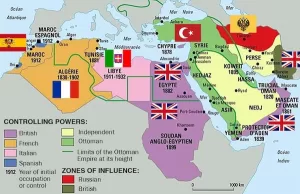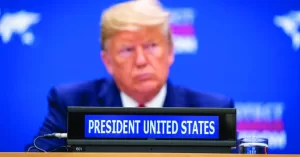Seeds are an often-overlooked political battleground in industrialized countries like those of North America and Europe, but for peasant farmers in the Global South, the battle over seed rights is critical to their livelihoods.
Locally shared seeds are crucial for many rural communities—“genetic keys to biodiversity and climate change resilience,” as researcher Afsar Jafri states, as well as “records of cultural knowledge” and “the ultimate symbol of food security.” However, farmers’ ability to continue sharing and planting these seeds is under constant threat by multinational corporations and the states that back them.
In 2015, the six largest agribusiness corporations—BASF, Bayer AG, Dow, DuPont, Monsanto, and Syngenta—controlled 63 percent of the commercial seed market. In 2018, Bayer acquired Monsanto for $66 billion. The resulting corporate entity controls nearly 60 percent of the world’s proprietary seed supply.
Patented seeds against farmer livelihoods
The imposition of patented transgenic seeds onto rural communities has had a catastrophic impact on human livelihoods and biodiversity protection. In many countries, seeds have traditionally been the collective property of farmers—however, these farmers’ right to control their own seed supply is being attacked by corporate forces which have captured capitalist states around the world.
In 2010, the government of Colombia adopted Law 970 as part of a free trade agreement (FTA) with the United States government. Under the terms of the FTA, Bogotá gave legal monopoly to seeds produced by U.S. and European corporations and forced Colombian farmers to only use certified seeds manufactured by these companies. Farmers who were caught saving seeds or planting unregistered seeds were subject to fines or jail time. These laws were a condition for Washington to agree to the FTA.
Law 970 not only precipitated a rise in food production prices, since farmers were forced to purchase seeds from companies like Monsanto rather than use communally shared seeds; it also caused the Colombian state to destroy food products grown from saved seeds. This occurred in 2011 in towns like Campo Alegre, where Colombian authorities raided the warehouse and trucks of rice farmers and destroyed 70 tonnes of rice that was not produced in accordance with Law 970.
The state’s violent criminalization of seed saving and localized food production in Campo Alegre and other towns provoked a nationwide farmers’ protest, which succeeded in having the law suspended for two years and rewritten. However, these changes did not represent a policy reversal, as attacks on peasant livelihoods and targeted assassinations of peasant leaders continue to plague the countryside at a terrifying rate.
Seed monopolies and globalized capitalism
In India, the government’s imposition of the kind of industrial capitalist agriculture promoted by the IMF and World Bank has led to tremendous rates of dispossession and pollution—and, of course, mass resistance as demonstrated by the farmers’ protests of 2020-2021. Such policies also take aim at farmers’ ability to save and share seeds locally. One statistic claims that of the roughly 100,000 varieties of paddy seeds that existed in pre-independence India, there are only around 5,000 left today.
As Jafri writes:
The forced replacement of traditional seeds by chemical responsive hybrid seeds…is eroding the rich genetic diversity that India’s farmers have evolved over centuries, increasing farmers’ vulnerability to climate change, floods, droughts and other environmental disasters. At the breakneck speed which the traditional seeds are already being replaced with company seeds, [the] day is not far when Indian farmers will be forced to become completely dependent for seed supply from [transnational companies].
The corporatization of seeds and the criminalization of seed saving is a key feature of the post-Cold War push for capitalist globalization of the type embodied by the neoliberal structural adjustment programs (SAPs) advocated by the IMF, the World Bank, and the Washington Consensus. These austerity reforms and the aggressive push by Western countries for FTAs in the Global South have put tremendous pressure on rural livelihoods in many ways, including by attacking small farmers’ production and distribution of the local seed varieties. The planting of these seeds is ecologically, economically, and socially regenerative, but they earn no profits for the transnational companies whose interests are paramount in FTA negotiations.
The “colonial project” of genebanks
Seed saving is a key element of sustainable agricultural production because, as Canadian researcher Patrick Chassé writes, “this incremental selection process created unique landraces, or varieties of plants that are well adapted to their environment.” However, the national and international pressures exerted on seed-saving farmers are immense:
Some farmers still diligently save their seeds, but most have abandoned this tradition because they face financial pressure to produce large volumes of uniform crops that can be sold in grocery stores. Around the world, farmers have become dependent on large companies that sell specialized seeds that, by design, cannot be saved… Many heirloom varieties that were well adapted to specific eco-regions have been lost in this chase for maximum yields.
Seeds are still saved in Western countries like Canada, but they tend to be treated as artifacts, isolated in research centres called “genebanks” which are designed to preserve the seeds for decades. While genebanks may save the seeds from extinction, they are generally not concerned with reintegrating the seeds into their natural environment, a move which would threaten the profit margins of the large agribusiness corporations with which the Canadian state has historically allied itself. As Chassé writes:
This means that the naturally democratic act of seed saving has been replaced by a reliance on large research centres that store seeds far from the communities and landscapes that created the plant.
After visiting Plant Gene Resources of Canada (PGRC), a genebank on the University of Saskatchewan campus, Chassé was unable to shake the impression that the facility and others like it are a “colonial project.”
Genebanks store thousands of plant varieties, but most of these were created by anonymous farmers and peasants. This crop diversity now often benefits industry. Around the world, small producers have struggled to remain competitive against industrial farms that invest heavily in increasing production and minimizing costs. These monolithic operations are always searching for new crop variants, hybrids that produce more while resisting the spectrum of diseases that are created by relentless monocropping. These desirable traits that favour commerce are often extracted from the ‘heritage’ varieties that were created by centuries of small farmers. As Michael Taussig acerbically observed, “seeds banks are booty, relics of despoliation.”
Agriculture in Chávez’s Venezuela
Venezuelans have decided to take an entirely different approach to seed politics. With the election of Hugo Chávez in 1999, rural development and self-government were foregrounded through laws focused on agrarian reform and land redistribution. Additionally, the new constitution, approved by popular referendum in December 1999, emphasized the importance of food security “through the promotion of sustainable agriculture as a strategic basis for integrated rural development.”
Chávez himself railed against transgenic foods on many occasions, highlighting the ways in which this model of agriculture dismantles a nation’s food sovereignty. In 2004, for example, he terminated a contract with Monsanto to plant 500,000 acres of transgenic soybeans on Venezuelan soil, announcing instead that the land would be used to grow yuca, an indigenous crop.
The Venezuelan government promoted local organization via participatory measures like the Organic Law of Communal Councils, placing more democratic control of production in the hands of both rural and urban communes and thus eroding the central role of national and multinational agricultural companies.
In addition to supporting grassroots production in urban centres, Chávez sought to engineer a rural renaissance by encouraging migration out of cities and into agricultural careers. He stressed the need to attain national food sovereignty by moving away from imports toward self-sustaining networks producing indigenous crops in ecological ways. He explained that people in Venezuela were drawn to the cities by a “centripetal force,” and that his policies aimed to reverse the trend in order to “occupy the geographic space of the country in a more harmonious and balanced way.”
One of the most progressive steps toward protecting small-scale agriculture in the country came after Chávez’s death, with the National Assembly’s passage of a new Seed Law in 2015. But while the Seed Law was approved after his death, its roots can be found in the agricultural philosophy and doctrine of popular participation espoused by his government from 1999 to 2013.
The 2015 Seed Law
Telesur contributor Quincy Saul referred to the passage of the 2015 Seed Law as “arguably the biggest thing to happen in Venezuela since the death of Hugo Chavez,” an occurrence in which “a movement of small farmers took on one of the largest corporations in the world [Monsanto], and won.”
Following the Seed Law’s approval,
imported seeds (especially of garden vegetables) have practically disappeared, entering into the illegal economy. Meanwhile, seeds for more traditional crops, which have always been under popular control, have become more important in campesino production… In that sense, the law is more than a law: it is a plan for action to gain seed sovereignty.
While the radical land reform measures pursued under Chávez have stalled under Maduro, the passage of the Seed Law at a time of increasing political and economic crisis represented a major win for the scientists, small farmers’ movements, and local organizations who had been pushing the state to enact such legislation for years.
The Seed Law was the result of years of consultation with social movements and peasant organizations in the country. In addition to prohibiting transgenics and the privatization of seed varieties, the law promises governmental support for the protection and expansion of farmer-run seed systems. The stated objectives of the law as outlined by the Association for Plant Breeding for the Benefit of Society (APBREBES) are to:
support a transition from industrial agriculture to agroecology and an eco-socialist agriculture; promote the production of seeds at national level and ensure self-sufficiency; protect agrobiodiversity; promote the traditional and local knowledge and practices of peasants, afro-descendant and indigenous peoples, and other local communities; prohibit patents and plant breeders’ rights on seeds; prohibit transgenic seeds; and guide public policies so that differentiated standards and policies are applied according to the scale of production…the law prohibits seeds that endanger ecosystems, biodiversity, human health and food sovereignty. Violation of these prohibitions may be penalized with 5 to 10 years of prison.
The Seed Law created a National Seed Commission, comprised of four governmental representatives and three representatives from social movements, as well as a Popular Council for the Protection of the Local, Peasant, Afro-descendant and Indigenous Peoples’ Seeds. As APBREBES explains, “The Council’s role is to promote peasant seeds systems, including the conservation, use and exchange of seeds, local seed banks, community seed production enterprises, collaborative breeding and participative certification mechanisms; as well as to participate in policy making and provide inputs to the National Seed Commission.”
Implementing the Seed Law from below
As political confrontation intensified in Venezuela, the oppositional-controlled National Assembly passed a different seed law that called for the return of imported transgenic seeds and seed patents. At the same time, opposition demonstrations against the state sometimes vandalized government-run food research and distribution centres, including the National Institute of Nutrition and laboratories for the production of ecological farming inputs. Meanwhile, U.S.-led sanctions precipitated a collapse of government revenues, meaning the state had few resources to support the implementation of the Seed Law.
Nevertheless, local organizations and communities began to implement the Seed Law from below. Plan Pueblo a Plan, a peasant-created initiative to push back against Venezuelans’ reduced access to food as a result of sanctions, joined with Proinpa (Integral Producers of the Páramo) to establish five centres for the local production and distribution of native potato seeds. Pueblo a Pueblo producers also began efforts to recover corn, legume and tuber seed varieties that had largely vanished under the pre-Chávez industrial agriculture model.
And it isn’t only Pueblo a Pueblo and Proinpa. Seed production centres were built throughout the country after the passing of the Seed Law—but, at the same time, the Bolivarian Revolution’s precarious position resulted in the re-emergence of more market-centred forces in the state and the increased power of interest groups such as agribusiness. As a result, the gains made after 2015 are in a dangerous position.
The Seed Law in danger
Despite the fact that the Seed Law prohibits the use of transgenic seeds, there have been reports of companies using genetically modified seeds on Venezuelan land. In November 2022, Esquisa Omaña of the organization Venezuela Free from GMOs stated: “Campesinos have denounced the presence of GMO seeds in different parts of the country. This violates the 2015 Seed Law.” The organization called on the National Seed Commission to look into the complaints but apparently found “no capacity or interest” from state institutions to investigate.
Ricardo Vaz blames the increased influence of private companies since 2015 for the state’s lack of interest in investigating allegations of Seed Law violations. “[T]here is a reconfiguration process going on that surrenders protagonism to the private sector and multinational corporations,” he argues. “In what concerns food production, agribusinesses have become the main actors, with the government openly calling for foreign investment in the sector and offering all possible advantages.”
In 2022, several Venezuelan officials floated the idea of revising the Seed Law in order to drum up international investment in the country, while elements of the press have condemned seeds traded between farmers as “pirate seeds.” Venezuelan agribusinesses have organized events around the reintroduction and promotion of transgenic seeds, including an April event in the city of Maracay titled “Future of the Technology of Genetically Modified Organisms.” One of the groups behind such events, the Venezuelan Association of Seed Companies (AVESEM), is associated with multinational giants Bayer and Syngenta.
Pablo Alvarado, representative of the state of Guárico for the Pátria Para Todos (PPT) party, has called for a revision of the Seed Law in order to generate more foreign investment. “Intellectual property must be protected,” he stated, “because we need to adapt to globalization, to new investors, we have to protect ideas, technology.”
While Alvarado asserts that he is not calling for the reversal of the Seed Law, peasant organizations and agroecologists in Venezuela find such statements worrisome. Activist and biologist Giselle Perdomo has said that there are clear economic interests behind such calls to alter the Seed Law:
The interests are clearly economic, with a desire to bring transgenic seeds to the country, particularly corn, and thus develop this type of industrial agriculture with pesticides, which on the one hand promises productivity, and on the other hand contaminates rivers, soils and affects food sovereignty… The Seed Law also reinforces the viability of the peasant seed trade. We see in different press articles a desire to criminalize the trade of what they call “pirate seeds.”
The Seed Law as a global model
Despite the pushback the Seed Law continues to face, it remains a model for how countries around the world can safeguard their biodiversity, ecology, social and economic fabrics, and food production systems from national and transnational agribusiness.
Other social movements in the region have clearly taken notice. For example, the Colombian House of Representatives has been presented multiple times with draft legislation “to prohibit the entry, production, commercialization and export of genetically modified seeds.” These proposals were rejected under former President Iván Duque, but current leader Gustavo Petro, who criticizes genetically modified crops and used the language of food sovereignty to promote sustainable agricultural practices, may revisit the question in the future.
While Venezuela has often been discussed in the media, usually as a simplistic cudgel against the left, the realities of political struggle in the country have produced numerous gains that can and should inspire others, foremost among them being the 2015 Seed Law. The law provides a model for how the knowledge and traditions of small-scale farming can be defended against corporate dispossession—but ongoing debates about its revision also highlight the precarity of such changes and the need to continue defending gains even after they have apparently been secured.
(Owen Schalk is a writer from Winnipeg, Manitoba, and a columnist at Canadian Dimension magazine. Courtesy: Canadian Dimension, a forum for debate on important issues facing the Canadian Left today, and a source for analysis of national and regional politics, labour, economics, world affairs and art.)




